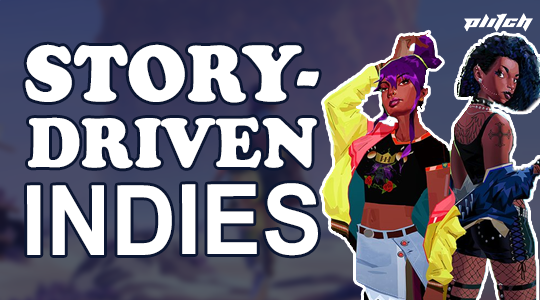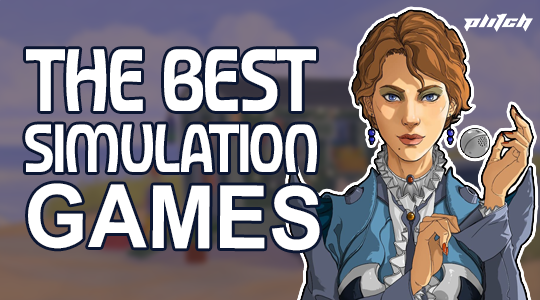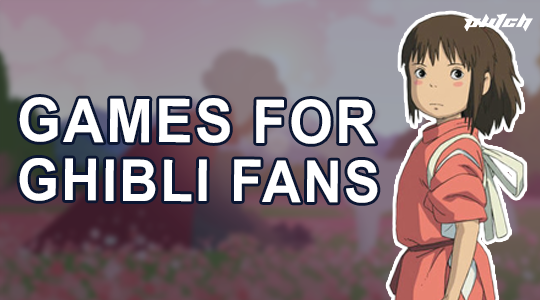Who says you need words to tell a great story? Some games skip dialogue entirely yet still hit harder than most cutscenes. We want to highlight ten games without dialogue that use visuals, music, and atmosphere to draw you in.
Table of Contents
Planet of Lana
Planet of Lana doesn’t need dialogue. It tells its story through its breathtaking world, stirring music, and the unspoken bond between a girl and her tiny companion, Mui. From the moment you step onto its vibrant, alien planet, you’re immersed in a serene yet hauntingly beautiful puzzle adventure. This game isn’t about quick reflexes or chaotic combat. It’s about taking your time, breathing in the scenery, and solving one calm, clever puzzle at a time.
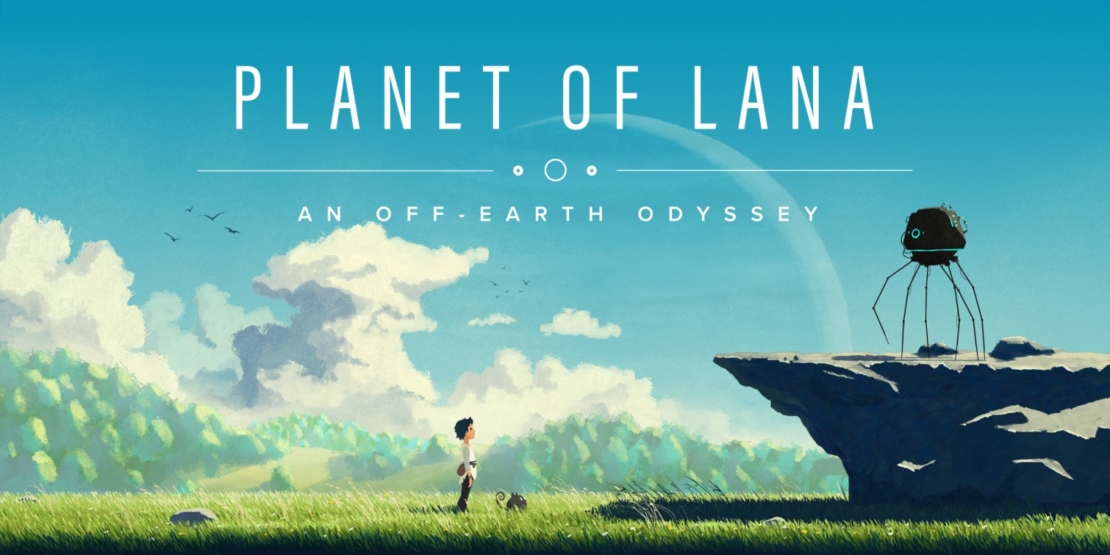
The story unfolds without text or conversation, yet it remains impactful. Through subtle gestures, environmental storytelling, and quiet urgency, Planet of Lana tells a rich sci-fi tale that spans galaxies. It explores themes of loss, connection, and the struggle to maintain harmony in a world on the verge of collapse. You’ll discover everything you need to know simply by observing and listening closely. Despite the looming machines and mysterious threats, this is a game filled with warmth and heart.
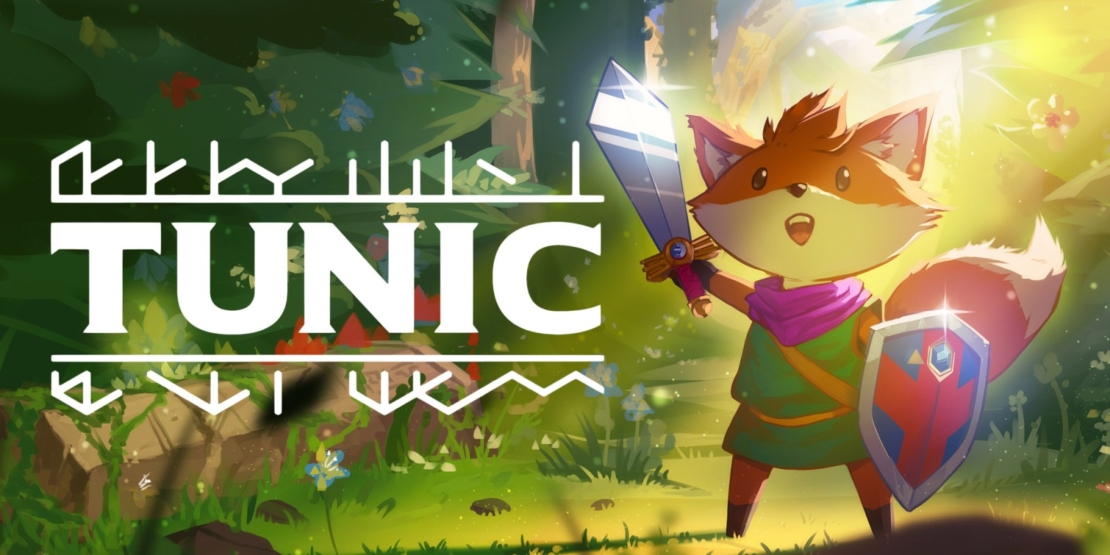
TUNIC
TUNIC immerses you in a strange, beautiful world as a tiny fox. There is no context or words to guide you. There’s no dialogue or helpful narration, only a cryptic in-game manual written in an unknown language. It’s confusing and frustrating at first. But that confusion is precisely the point. The more you play, the more you realize: TUNIC wants you to feel lost. Discovery is the language it speaks.
When you finally decipher a symbol, discover a hidden path, or understand the meaning of a manual page, that’s when the magic hits. It’s like a combination of Zelda, Dark Souls, and The Witness, all wrapped in a deceptively cute isometric package. Boss fights are brutal. The puzzles are deep. Secrets are everywhere. Just when you think you’ve seen it all, you realize there’s a whole “true ending” hidden behind layers of riddles. TUNIC doesn’t hold your hand. It dares you to pay attention, explore, and figure it out. That’s what makes it brilliant.
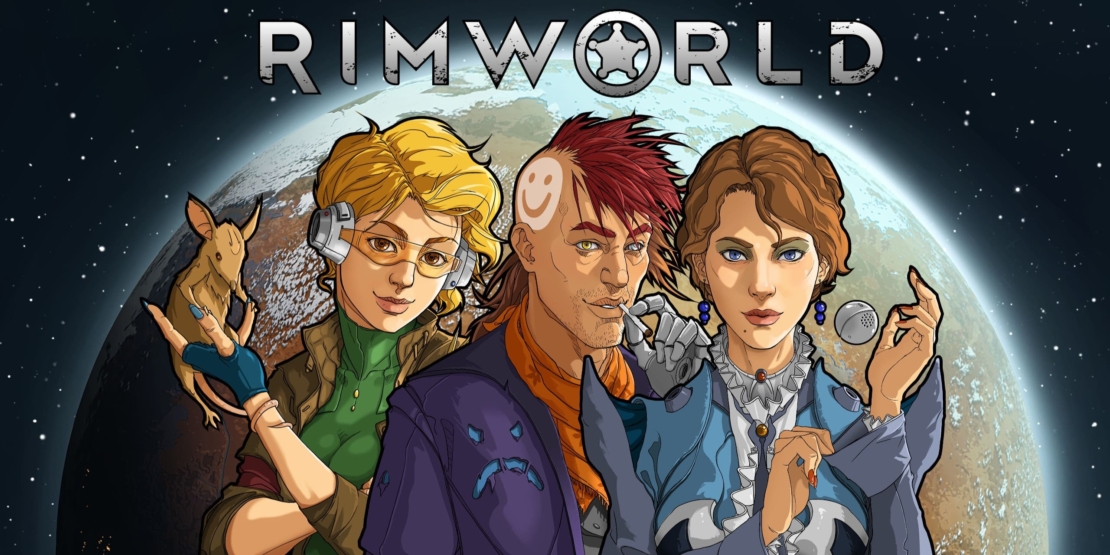
RimWorld
The sci-fi colony sim RimWorld tells its incredible story not through dialogue, but through you and your colonists. You’re dropped into a brutal yet beautiful world where your ragtag crew of crash survivors tries to establish a functioning society. However, they’re not exactly competent, and everything is out to kill them: cold snaps, pirate raids, wild animals, food poisoning, mental breakdowns. And it’s glorious.
Behind the scenes, an AI “Storyteller” determines what happens next (you get to pick the flavor of chaos). Phoebe might give you a relaxing farming session. Randy might crash a meteor into your kitchen while you’re fighting manhunting squirrels. Your pawns never speak, but their actions speak volumes. One minute they’re flirting; the next, they’re setting the crops on fire because someone insulted their hat. RimWorld is messy, unpredictable, and endlessly replayable. Every failure makes you want to try again.
Little Nightmares
Little Nightmares doesn’t need dialogue to draw you into its twisted world. You wake up as Six, a tiny figure in a yellow raincoat, trapped inside the Maw, a colossal, rusted ship teeming with nightmarish adult caricatures. There’s no guide or exposition; just a brass lighter in your hand and the constant, creeping feeling that you’re being watched. What makes this game unforgettable is how it tells its story entirely through atmosphere.
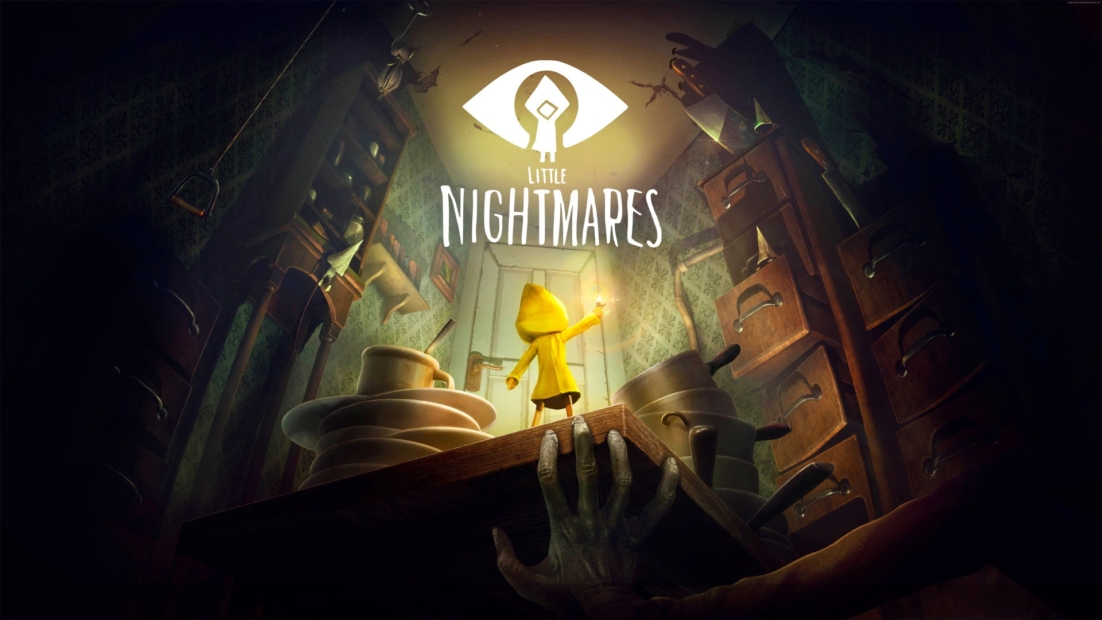
Every creaking floorboard, flickering light, and grotesque enemy design oozes unease. You’re small and feel utterly powerless. There are no weapons here. You hide. You run. You solve puzzles in desperate silence while monstrous beings sniff you out with jerky, unsettling movements. The world design is phenomenal. It’s surreal and haunting yet oddly beautiful. From grimy kitchens to echoing hallways, every environment tells its own sinister tale. Six herself remains a mystery; her covered face makes you wonder who she is or what she’s hiding.
💡 Tip: Don’t miss our blog on short games you can finish in a weekend!
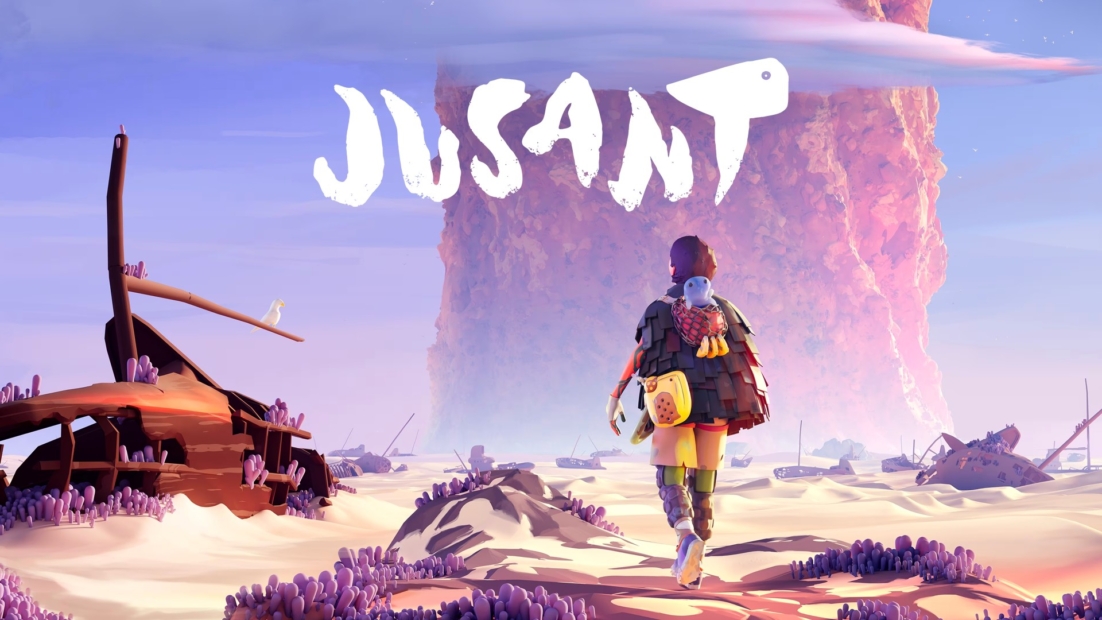
Jusant
In Jusant, you climb and explore. Without anyone saying a word, you feel everything. It’s a meditative, atmospheric puzzle climber in which you scale a colossal tower with a mysterious water companion. Each section unveils new biomes, environmental puzzles, and soft echoes of a long-lost civilization. But don’t expect a fast-paced thrill ride. Jusant is all about slowing down. Rest when your stamina is low, pause to take in the view, and let the world wash over you.
As you place anchors and chart routes, the game guides you deeper into its story through stunning visuals, intuitive mechanics, and thoughtful level design. Scattered letters and the ruins themselves whisper fragments of a forgotten past. It’s world-building without exposition, and it hits harder because of that. Whether you’re playing to unwind or searching for meaning, Jusant proves that silence can be one of gaming’s most powerful tools.
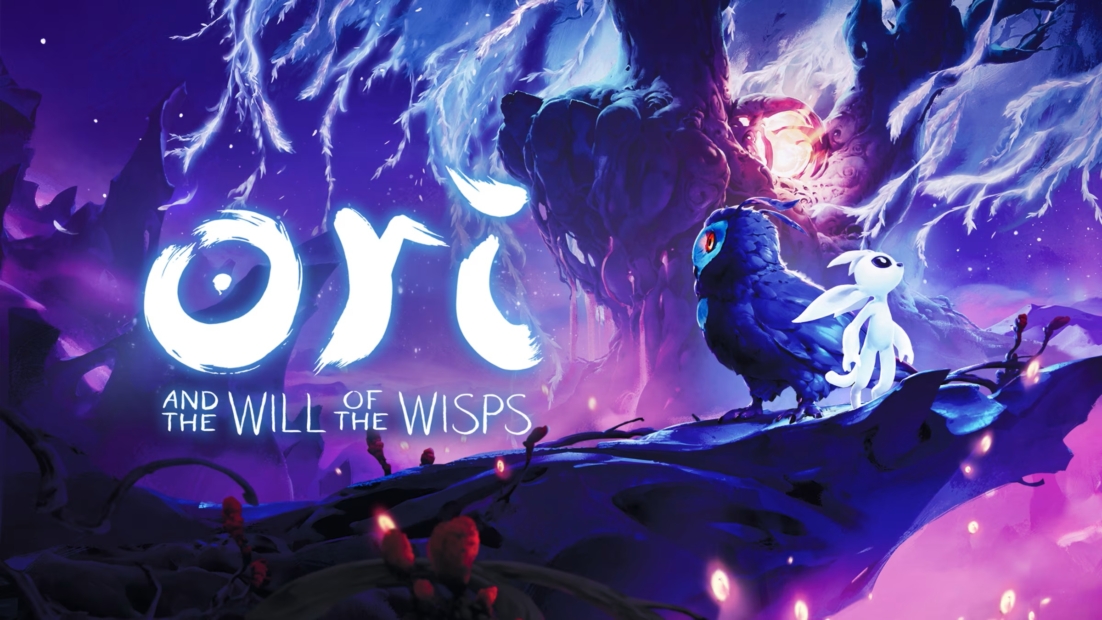
Ori and the Will of the Wisps
Ori and the Will of the Wisps showcases the power of storytelling, even without dialogue. While the forest spirit Seir occasionally speaks to guide you through pivotal moments, the game conveys most of its emotional weight through haunting music, mesmerizing visuals, and gameplay. In this stunning sequel to Ori and the Blind Forest, you follow the guardian spirit Ori on a heart-wrenching journey to save a lost friend, mend a shattered world, and discover his true destiny.
The hand-painted environments resemble something out of a storybook: lush, glowing, and full of detail. Every frame feels alive. The soundtrack swells and falls with your every move, making even simple moments feel epic. You’ll feel the weight of loss, the joy of reunion, and the thrill of survival, all without anyone saying a word. Beneath the beauty, you’ll find precise platforming, creative puzzles, and intense battles. The game is challenging in the best way, pushing you to improve while keeping you emotionally engaged.
💡 Tip: If you’re looking for more games like Ori, check out our blog on the best Metroidvanias!
Hyper Light Drifter
In Hyper Light Drifter, you’re immersed in a broken, dazzling world teeming with danger, mystery, and forgotten technology. There is no dialogue, text boxes, or hand-holding. You must rely on your instincts and reflexes to navigate the haunting beauty of a place that clearly remembers pain. You play as a Drifter, a solitary wanderer who navigates cryptic lands while being haunted by a deadly illness. Every step feels significant. Each new region you explore holds forgotten history.
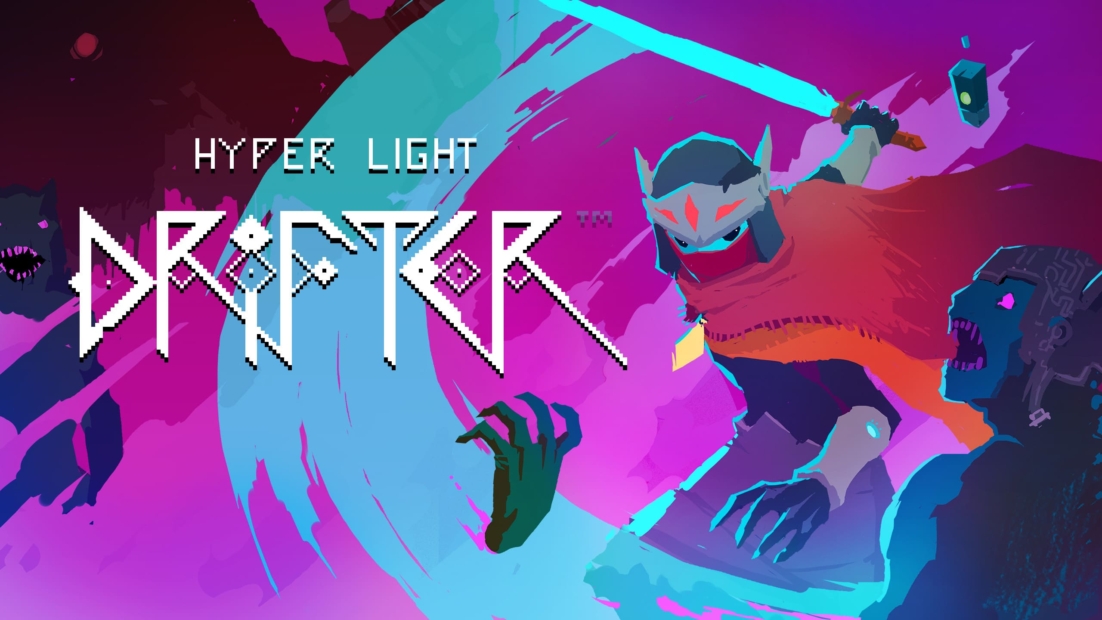
Though you may not understand this world’s language, you’ll feel its weight in the music, pixel-perfect visuals, and the way each encounter tells its own story. Combat is fast, tight, punishing, yet fair. The game challenges your curiosity, pushing you to piece together meaning through exploration alone. Hyper Light Drifter is a masterclass in visual storytelling and one of the most emotionally powerful games you’ll ever play, even without a single spoken line.
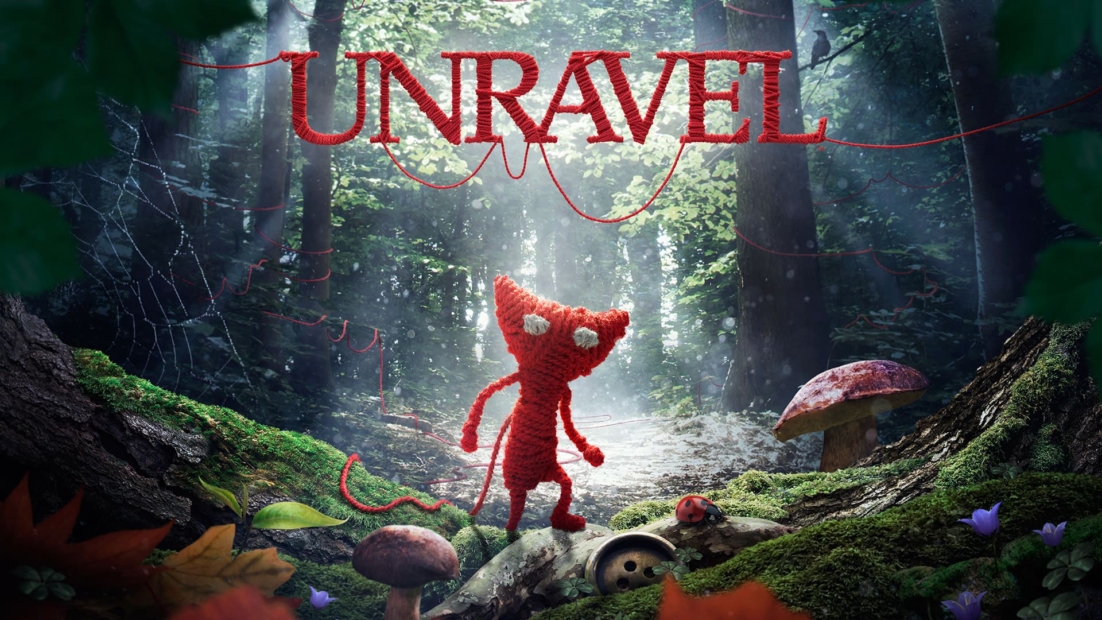
Unravel
Unravel has no dialogue. Honestly, though, you won’t miss it. This game conveys emotion through stunning visuals and the gentle tug of yarn over mossy stones and frosty branches. You play as Yarny, a tiny creature made from a single thread of red yarn that slowly unravels with each step. You embark on a quiet, heartfelt journey through the memories of a family.
Unravel‘s charm isn’t just in its clever physics puzzles or satisfying mechanics (though swinging from tree branches or catching a ride on a kite never gets old). It’s the way the game tells a powerful story about love, loss, and connection without saying a word. Every level feels like a personal photo album brought to life and inspired by the landscapes of northern Scandinavia. Despite its simplicity, Unravel is rich with detail and heart. It’s a reminder that games don’t need grand speeches or walls of text to move you. Sometimes, the quiet ones leave the biggest impact.
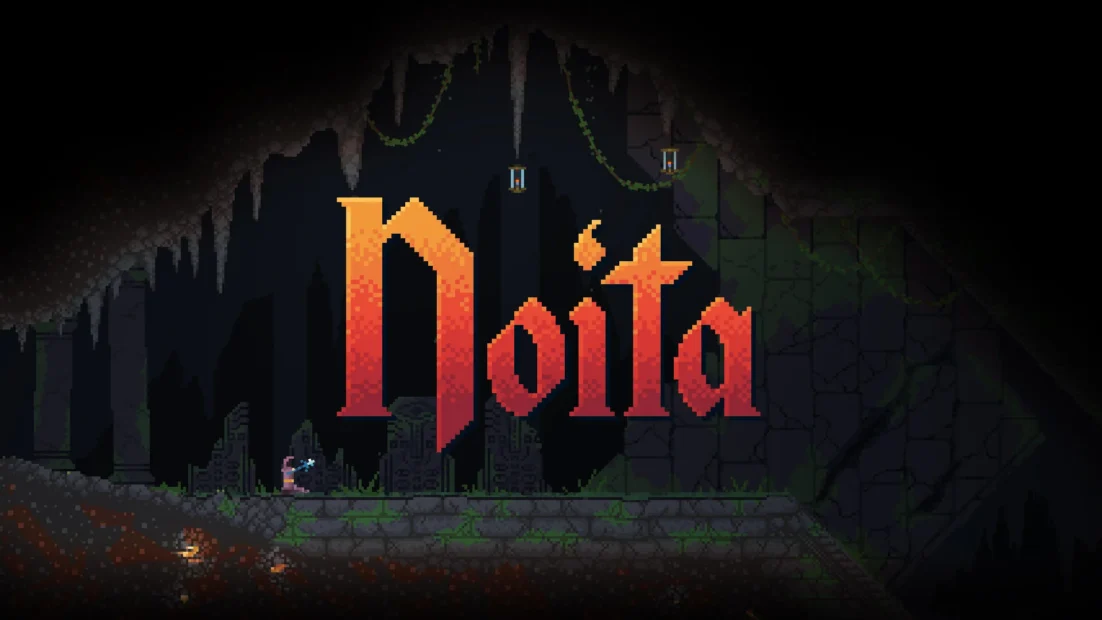
Noita
In Noita, no one speaks to you. There are no cutscenes filled with exposition, no NPCs offering quests, and no dialogue trees to navigate. The only words you’ll ever see are brief, ominous messages like “You have angered the gods.” But don’t mistake the silence for emptiness. Noita is filled with mystery and meaning concealed within its environments, mechanics, and chaos.This magical action roguelite immerses you in a pixel-perfect world where every single pixel is simulated.
Lava flows, acid corrodes, snow melts, and everything explodes if you’re not careful—or even if you are. You build your own spells, crafting wands with the precision of a mad scientist, and then watch as the results either obliterate your enemies… or yourself. It’s punishing, strange, and beautiful. Every run is different, and every discovery is hard-earned. As you dig deeper (sometimes literally), you uncover hints of ancient powers and secrets inspired by Finnish mythology. Rather than lore dumps, you get fragments of a forgotten world that you must piece together if you dare to explore.
Neva
You don’t need words to feel everything Neva wants you to feel. From the creators of GRIS, this visually stunning action-adventure game follows Alba and a white wolf named Neva through a decaying world full of beauty, danger, and emotion. Aside from Alba occasionally calling Neva’s name, there’s no dialogue. The game shows you everything you need to know, and that somehow hits even harder.
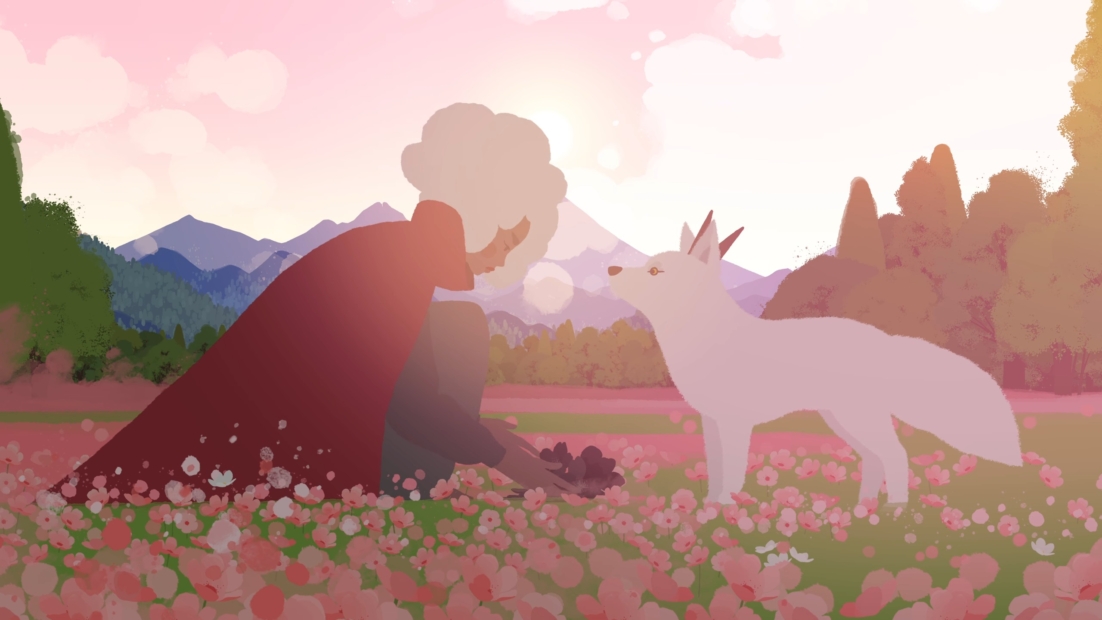
The game tells a deeply emotional story through its art, music, and subtle gestures. You’ll watch the bond between Alba and Neva grow, shift, and get tested as the wolf matures. It’s a quietly powerful and unforgettable journey through grief, love, and change. The ending mirrors the beginning in a way that will leave you devastated, proving that games can be as emotionally resonant as films or novels. If you love emotional stories, gorgeous hand-drawn art, and wolves with serious main-character energy, give this one a try.
💡 Tip: Check out our exclusive interview with Nomada Studio, the creators of GRIS and Neva!
